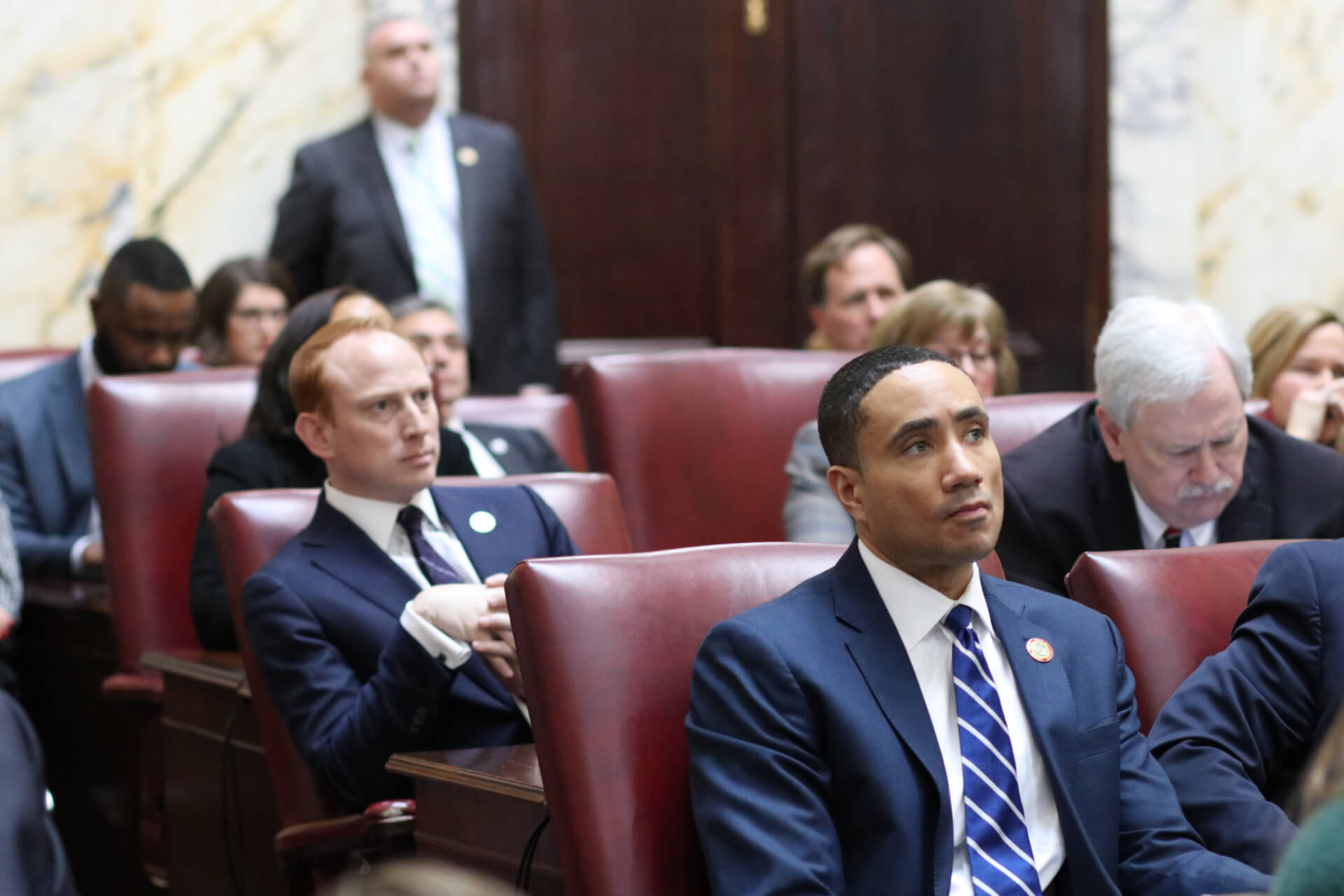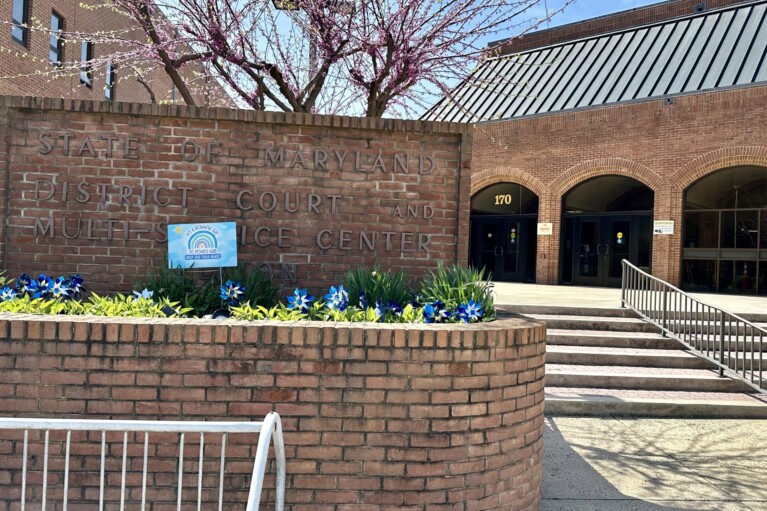Senate Panel Moves Compromise Package on Crime-Fighting

After days of wrangling, Maryland senators are moving forward with a bipartisan package of bills aimed at addressing crime in the city of Baltimore.
The bills out of the Judicial Proceedings Committee include top priorities of Republican Gov. Lawrence J. Hogan Jr. and of Democratic leadership in the General Assembly.
Elements from one of Hogan’s top priorities ― The Violent Firearm Offenders Act ― was amended onto a bill from Sen. Michael J. Hough (R-Frederick) that would make theft of a firearm a felony and increase penalties for repeatedly illegally possessing a firearm, knowingly giving a gun to someone who plans to commit a crime, and using a gun while dealing drugs.
However, the amended measure curtailed mandatory minimum sentences originally proposed by the governor and includes safeguards for prosecutorial and judicial discretion.
The committee’s vote comes weeks after Hogan and Judicial Proceedings Chairman William C. Smith Jr. (D-Montgomery) clashed publicly over the violent offenders bill. Hogan called for Smith to step down from his leadership post after the chairman said he opposed the measure ― specifically for its original inclusion of mandatory minimums.
In the weeks since, quiet conversations yielded the compromise measure voted out of committee on Wednesday. It’s unclear what support the measure has on the Senate floor or in the House of Delegates.
“Although I have an allergy to mandatory minimums because that takes away discretion and doesn’t keep anyone safe, I think that having some enhancements on repeat violent offenders, while ensuring that the judiciary and prosecutors have discretion to look at things on a case-by-case basis, then we have a better chance at justice and cleaning up some of the streets,” Smith said Wednesday.
After striking an agreement in principle in conversations that included Senate President Bill Ferguson (D-Baltimore City) last week, the committee has been hashing out final details on Hogan’s measure and others this week.
Other amendments included in Hough’s bill would prohibit District Court judges from releasing defendants facing firearms charges if they are currently on pretrial supervision for another gun charge or violent offense, a provision of Hogan’s bill. Committee Democrats pressed for an amendment that requires the state to provide individuals being released from prison a “reentry kit,” which would include resources and a week’s worth of basic necessities.
Hough said Republicans and Democrats on the committee came together in a good faith effort to address a real concern about repeat offenders in the city.
“We obviously have a problem with a small slice of the population that are re-offending,” Smith said, referring to statistics about the average number of previous arrests for homicide victims (10.8) and homicide suspects (8.2) in the city.
Sen. Jill P. Carter (D-Baltimore City) cast the lone “no” vote on the measure, which passed the committee, 10-1.
“It’s my belief that it doesn’t do anything to immediately address crime,” Carter said after the vote. “It’s the same-old harsh penalties, tough-on-crime mentality that got us into the situation that we’re in in Baltimore City.”
She said the city needs more resources to help boost a low clearance rate for violent crimes, which the bill doesn’t address.
The committee also voted on Wednesday on a bill from Smith that would establish local councils to create regional comprehensive crime control plans and on the P.R.O.T.E.C.T. Act from Sen. Antonio L. Hayes (D), chairman of Baltimore’s Senate delegation, that would require the state to identify 10 high-crime micro-zones and target additional crime-fighting resources in those areas. Hayes’ amended bill would also extend Maryland State Police jurisdiction to patrol major “entry and exit corridors” in the city including Interstate 83 and I-295 and require the state to draft a plan to reduce the number of uniformed Baltimore Police Department officers at the Baltimore City Juvenile Booking Facility.
“This will provide an opportunity for state and city agencies to come together to address the crime fight in Baltimore,” Hayes said.
Floor action on other priority criminal justice bills had been postponed as the committee wrangled with the bipartisan package moved on Wednesday.
On Thursday, the Senate chamber could vote on a handful of delayed measures ― to address witness intimidation by making it easier for prosecutors to admit statements in court, to increase annual reporting on decisions made by circuit court judges, and to require background checks on private sales and some transfers of shotguns and rifles.





 Creative Commons Attribution
Creative Commons Attribution